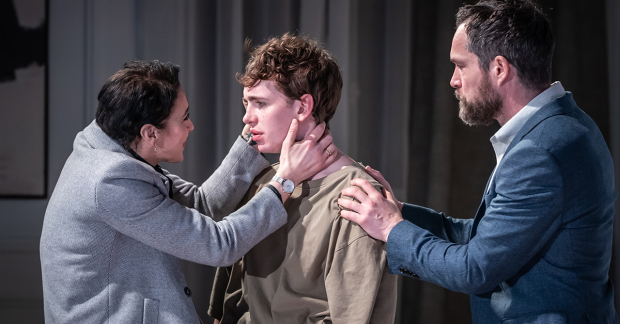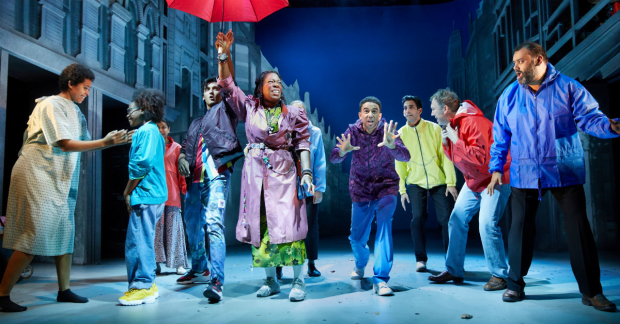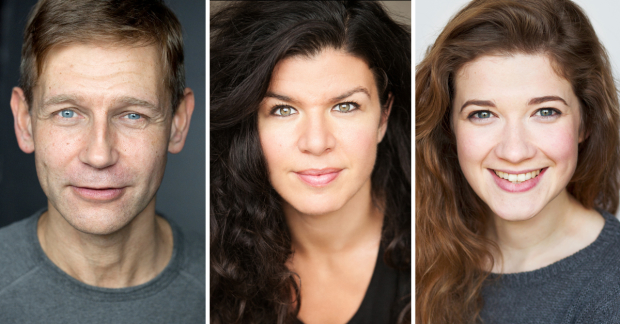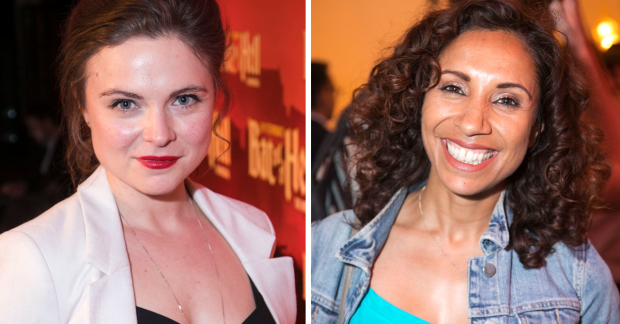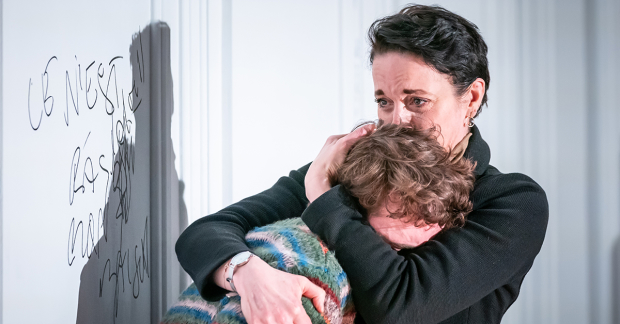Review: Wife (Kiln Theatre)
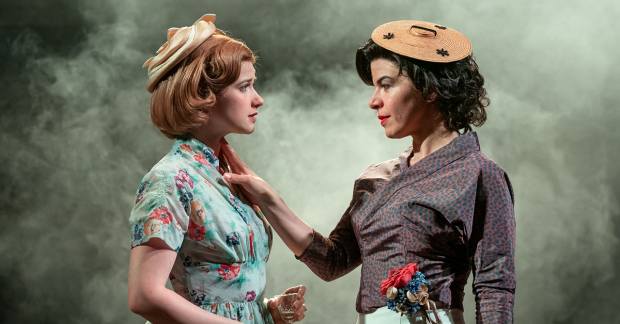
© Marc Brenner
Samuel Adamson's female-driven, big-mouthed meditation on queerness down the ages and the evolution of the institution of marriage is nothing if not ambitious. Starting out riffing wittily on Ibsen's A Doll's House and its controversial, independent-minded heroine Nora, Adamson's lively text rips through a period of some eighty years, with the brio and compulsiveness of a superior soap opera, albeit one with exceptionally fine dialogue.
The play opens in 1959 on an excruciating backstage showdown between actress Suzannah (Sirine Saba, magnificent), her married lover Daisy and Daisy's boorish, bullying husband. As the story progresses, lines from that first scene echo and ricochet through time as descendants and successors of this mismatched trio lead lives that may have a broader range of choices but seldom more genuine happiness as society's perspectives on homosexuality change and develop. Mores and attitudes may alter, it seems to be saying, but people fundamentally don't. Ultimately though, there is hope.
It wouldn't be appropriate to reveal more about the plot which is simultaneously complex yet easy to follow, but suffice it to say that the storytelling is skilful and satisfying. Adamson's people are a loquacious bunch but there is a muscularity, honesty and frequently obscene wit to their exchanges that ensure that audience attention seldom flags, even when some plot points and characters strain credulity.
Indhu Rubasingham's richly enjoyable production gives full rein to the play's exuberant eccentricity and crackerjack intelligence, although the abrupt gear changes between historical periods could be smoother: the arch opening is reminiscent of a gay Somerset Maugham while the 1980s sequence recalls Kevin Elyot at his most bleakly trenchant, and the present day section clumsily spoofs über-camp urban fashionistas.
As a potted gay history it may all be a little too neat and contrived, but Adamson and Rubasingham also take well-aimed, often hilarious, swipes at theatrical pretentiousness, and never lose sight of the real human hearts beating beneath the clever words and glorious campery. For a play that is so consistently funny and light of touch, the darker moments and the lovely, elegiac ending pack a real emotional punch.
Saba's Suzannah morphs delightfully into different permutations of the same warm, sharp-tongued woman as the piece hurtles through the decades, while Joshua James impresses in a trio of roles, but most notably as Ivar (named after one of Nora's children from the Ibsen), Daisy's unapologetically flamboyant grown-up son. Richard Cant delivers a beautiful portrait of the same man in later years, a brittle exterior hiding a damaged, delicate soul.
Karen Fishwick superbly distinguishes between uptight, anxious Daisy in the 1950s and a pair of smart but vulnerable modern young women determined to forge a connection with their own familial pasts. There is excellent, truthful work from Calam Lynch as Ivar's confused, likeable working class lover. Lynch also plays, with considerable relish, older Ivar's horribly bitchy, self-obsessed young actor husband. He's amusing but it's more caricature than truthful; not the actor's fault but it is one of the production's rare missteps.
In the second half the female characters are feistier and more fun, and accordingly the play comes to feel as much a paean to formidably strong women as it is a gay drama. This is perhaps also testament to the hopeful fact that gay visibility is now more widespread, at least amongst the more enlightened. Wife is very much a play for today. And yesterday. And tomorrow. It's thought-provoking, wonderfully theatrical and, despite its flaws, pretty gorgeous. I enjoyed it enormously.




